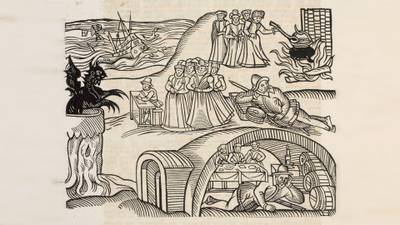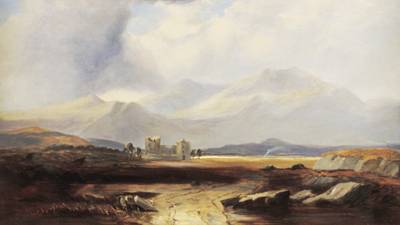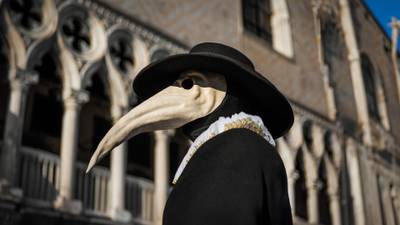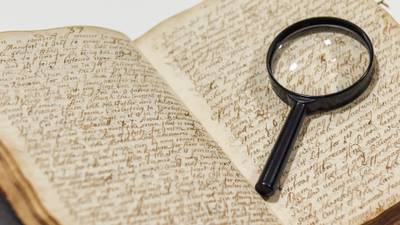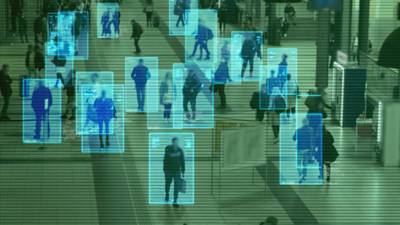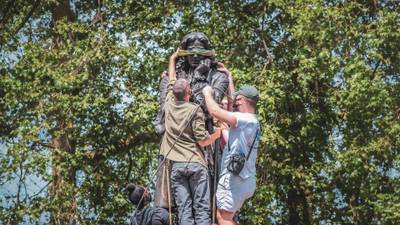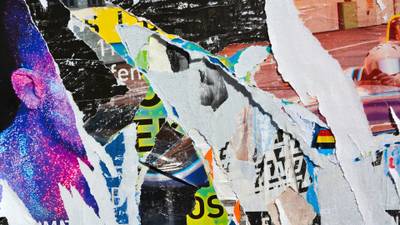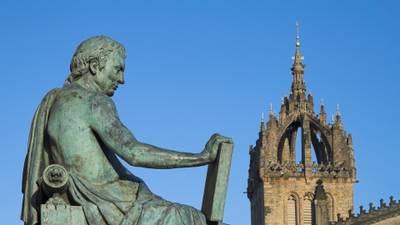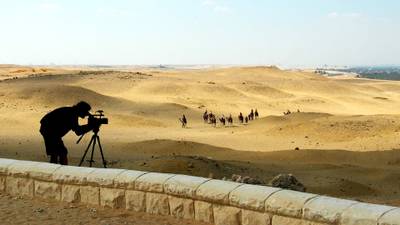Boost your digital skills for work in the museum, heritage and cultural sectors.
Join our online course in Digital Museum Practice and build your digital confidence. Study part-time with our experts and gain experience in this important part of contemporary professional practice.
In light of COVID-19, many museums have increased the rate at which they provide digital resources, online collections, 360-degree tours and more. You’ll learn to use these technologies with confidence, and explore:
- accessibility, care of information, and data usage
- the practical and philosophical questions of preserving and caring for artefacts in the Digital Age
- how digital and computing technologies have been impacting museum practice for the past six decades.
Who is this online museum studies course for?
This distance-learning course is ideal if you’re an emerging professional or early-career practitioner looking to:
- increase your digital confidence
- access postgraduate training in this field without committing to the time and cost of a Masters degree
- open up opportunities for your professional development.

Build credits towards a Masters degree
This online course is part of:
You can use the credits you earn with this short course towards this MSc qualification.
Choose the University of Aberdeen for flexible online short courses

Learn anywhere
On smartphone, desktop and laptop, with no need for a student visa.

Flexible
Flexible hours and 24/7 access, so you can study when it suits you.

20% alumni discount
University of Aberdeen alumni get 20% off fees for this online course.
What you’ll study
You’ll cover topics including:
Digital confidence – what is it, and why does it matter?
The history of museum computing – from early computerised catalogues of the 1960s, to the online social world of the present day
Digital policy and discourse – how digital technology has become an inherent part of cultural policy, and what that means for museums
Digital design – strategies and concepts including the Fit Triangle, Human-Computer Interaction, VX design, and Design Thinking
Display technologies – the history and use of display technologies, including interactives, VR/AR, and online
Digital ethics – what the growth of digital technology means for the ethical and moral behaviours and codes of museum institutions
Social justice and digital – the role of technology in social justice action through activism, repatriation/preservation, and accessibility
Digital objects – what happens to our basic idea of the material world when objects become digital?
Digital maturity and post-digitality – concepts of digital advancement and modes of measuring, including the Digital Culture Charter, Digital Maturity Index, and the idea of digital normativity.
There’ll be regular ‘Tech of the Week’ topics for you to explore.
You’ll also complete:
- a presentation focused on a digital intervention at the University of Aberdeen’s Museums and Special Collections, and
- an independent critical evaluation of the digital offer of a museum of your choice.
By the end of this course, you’ll be able to...
-
Identify and describe the variety of digital technologies available for museums to use.
-
Drawing on relevant literature, describe and evaluate how museums communicate and interact with their audiences through digital means.
-
Discuss critically, in written and verbal form, current issues and applications of technology in museums.
-
Critically evaluate museum websites and other digital media used by museums.
-
Prepare material for leading and participating in seminar discussions.
-
Demonstrate evidence of independent research.
How you’ll study
Online learning
This distance learning Digital Museum Practice course is delivered flexibly, 100% online.
You can learn with us anywhere in the world, no student visa required, and manage your study hours to suit you.
Your teaching
This course is taught at Masters level.
Teaching is delivered through MyAberdeen, our online Virtual Learning Environment (VLE). It holds all the materials, tools and support you’ll need in your studies. Take a look around MyAberdeen.
You can access your learning materials on computer, smartphone and laptop, 24 hours a day. You’ll find a range of resources available, including:
- videos and video lectures to stream or download
- podcasts
- online tutorials
- projects
- reading materials
- discussion boards with your tutors and peers
- the online resources of our award-winning Sir Duncan Rice Library.
Access to University Collections
You’ll be given access to the online catalogues of the remarkable University Collections. You’ll also have access to material from our museum staff, including policy documents.
Your tutors
You’ll learn from experienced tutors from our School of Social Science.
Your main tutor will be Dr Jen Walklate, a Lecturer and Curatorial Fellow in Museum Studies. She’s been working in the field since 2005, professionally and academically. Jen’s research focuses on the experience and ethics of spatial and temporal design in museums, carnivalesque practice, anxiety and unease.
You’ll be assessed online via two assignments.
- A group presentation proposing a creative digital solution to enhance the digital offer at the University of Aberdeen’s Museum and Special Collections Service (worth 25% of your total grade).
- An individually researched and written case study and critical evaluation of the digital offering of a museum of your choice (worth 75% of your total grade).
The course totals approximately 150 hours of study and assessment time. That’s around 10 – 15 hours per week.
This is an indicative guide to the time required for a typical student at this level to achieve the learning outcomes. This includes time for independent study, as well as teaching and assessments.
You can largely set your own study hours each week to cover the materials. MyAberdeen is available 24/7, so you can log in and study when it suits you.
Activities at fixed times
There may be some activities scheduled for fixed times. This could include coursework and assessments with deadlines, or online meetings with your tutor. Otherwise, you can access and work through the course at your convenience.
Our first-class support structure will ensure that you aren’t alone in your studies. You’ll have contact with your tutors via MyAberdeen and email. You can use social media and discussion boards to chat with your fellow students too.
We provide a wide range of services to support you in your studies and beyond:
- Careers and Employability Service
- Disability support
- IT support
- Library support
- Student Support Service – help with finances, wellbeing and non-academic issues
- Student Learning Service – study support, with advice sessions available
- Aberdeen University Students’ Association (AUSA) – run by students for students
- Toolkit – clever apps and free training that can make your study life easier
Wherever you are in the world, you’ll feel part of our very special Aberdeen learning community.
Your course coordinator

Dr Jen Walklate
Jen is a Lecturer and Curatorial Fellow. A museologist, historian and literary theorist, she studies the intersections between museums and other cultural media, including literature, drama and comics. Jen teaches on our MLitt in Museum Studies, specifically teaching in digitality, careers, and research.
View Jen’s profileWhere this will take you
Towards a Masters
You’ll earn 15 credits at Masters level (SCQF Level 11) with this course. You can use these credits towards our online:

MSc Cultural Memory, Heritage and Society
Build your academic skills in memory, heritage and social studies. Tailor your degree programme to your own interests.
View MSc Cultural Memory, Heritage and SocietyBuild your learning
Take your expertise in museum studies further and earn more postgraduate credits with our related online course:

Museums and Sustainable Futures
Join our online course for museum professionals and learn to create more sustainable museums and cultural spaces.
View Museums and Sustainable FuturesCareers
You’ll add sought-after experience in museum digitality to your CV with this course.
You’ll gain new skills, confidence, and understanding that will help you to progress in or towards a career in the:
- museum
- heritage, or
- cultural sector.
You’ll also gain experience in studying at Masters level, and build your skills in presentation and research.
Museum professional development
Your employer or professional institute may recognise this course for continuing professional development (CPD). Talk to your employer or institute to find out more.

Free career support
Access our free careers service while you study.
- 1:1 appointments
- CV checks
- Interview prep
- Job opportunities
Entry requirements
Entry requirements
We welcome students from all over the world.
This course has no formal entry requirements. You do not need to provide proof of your qualifications.
But you do need to check the entry guidance above to understand the level of teaching delivered, to decide if this course is right for you.
If you do not have qualifications from the UK, check the equivalent teaching level for your country.
Visa requirements
You do not need a student visa to study online with us.
English language requirements
Teaching is delivered in English.
You do not have to provide proof of your English language skills to join this course. But we want to make sure that you can use English well enough to study successfully.
Recommended level of English
This course uses our Postgraduate Higher level of English language proficiency.
These are our Postgraduate Higher requirements, and these are minimum scores.
IELTS Academic, IELTS UKVI Academic, or IELTS Online (not IELTS Indicator or IELTS General Training)
- 6.5 overall
- 5.5 for listening and speaking
- 6.0 for reading and writing
TOEFL iBT or TOEFL iBT Home Edition
- 90 overall
- 17 for listening
- 21 for reading
- 20 for speaking
- 21 for writing
- TOEFL DI code is 0818
Cambridge English: B2 First, C1 Advanced, or C2 Proficiency
- 176 overall
- 162 for listening and speaking
- 169 for reading and writing
LanguageCert Academic / LanguageCert Academic SELT
- 70 overall
- 60 for listening and speaking
- 65 for reading and writing
Oxford ELLT Digital – English Language Level Test Online
- 7.0 overall
- 5.0 for listening and speaking
- 6.0 for reading and writing
PTE Academic (online test not accepted)
- 62 overall
- 59 for listening, reading, speaking and writing
Skills for English: SELT
- B2 pass with merit
Duolingo – tests taken from 1 July 2024 onward
- 120 overall
- 95 for listening and speaking
- 105 for reading and writing
University of Aberdeen English Pre-sessional Programme (PSE)
- Pass
- Valid for one year. Refresher can be offered if out of date
Pre-sessional academic English preparation programmes undertaken at other UK universities
- Pass at an equivalent of 6.5 (C1)
- B2 in all four skills
- Certification must be within one year prior to the start of your course
For more information about language qualifications see our English Language Requirements page.
You will need access to:
A computer (PC, laptop or Mac) with an up-to-date operating system
Most teaching materials are smartphone- and tablet-friendly. But we recommend a proper laptop or desktop for completing assignments comfortably.
Reliable internet access
We recommend:
- a wired connection
- a minimum download speed of 2 Mbps so you can take part fully in live sessions.
Speakers or headphones
- We recommend a headset with built-in microphone and earphones if you’re likely to study in an environment with background noise.
- A webcam is optional, but you may like to use one for some interactive sessions.
Software
We’ll give you access to Office365 applications. This means you can use online versions of Microsoft Word, Excel, PowerPoint and OneDrive and install these programs on up to five personal devices.
If your course requires specialist software, we’ll provide you with access to this and a licence that lasts throughout your studies.
See our detailed IT requirements for more information.
When you study with us, you can expect a first-class support structure so that you’re never alone in your studies.
But learning online does mean you have to motivate yourself and manage your own time.
Your most important commitment will be time – the time to work through, reflect on and understand your teaching materials.
Before you start a course that involves a high degree of independent study, we recommend looking at the time you will be able to devote to your studies each week:
- Be realistic
- Create a weekly schedule as a guide
If you have any questions about studying online, get in touch with our friendly team. We’re here to help.
Fee payment
Your course fee needs to be paid in full before you start your course.
We accept payment via Visa Debit, Visa Credit and Mastercard.
Ways to save
You may be able to get help funding this course via:
- discounts – if any discounts are available for this course, they’ll appear in the section below
- employer sponsorship – we accept full and partial fee payments from sponsors.
Find out more about funding options.
Student card
All our students are entitled to a University of Aberdeen student card. This gives you access to a range of student discounts around the city and online.
Learning resources
Access to all the books and resources you need are included in your tuition fee. They’ll be made available to you online.
Museum visits
You may wish to make visits to museums in order to support your learning for this course, but this is your choice and is not essential to completing the course.
Printing
You may wish to set aside a small budget for printing, depending on how you like to work.
This course has no formal entry requirements. You decide if it’s suitable for you.
The course is delivered at Masters level. At this level of teaching, you’d usually have at least:
- a 2:1 honours degree in a relevant subject including, but not limited to: anthropology, history, art history, media studies, cultural studies, digital heritage, archaeology, geography, environmental sciences, biology, ecology or science communication, or
- alternative equivalent qualifications, or
- substantive work experience within the sector.







